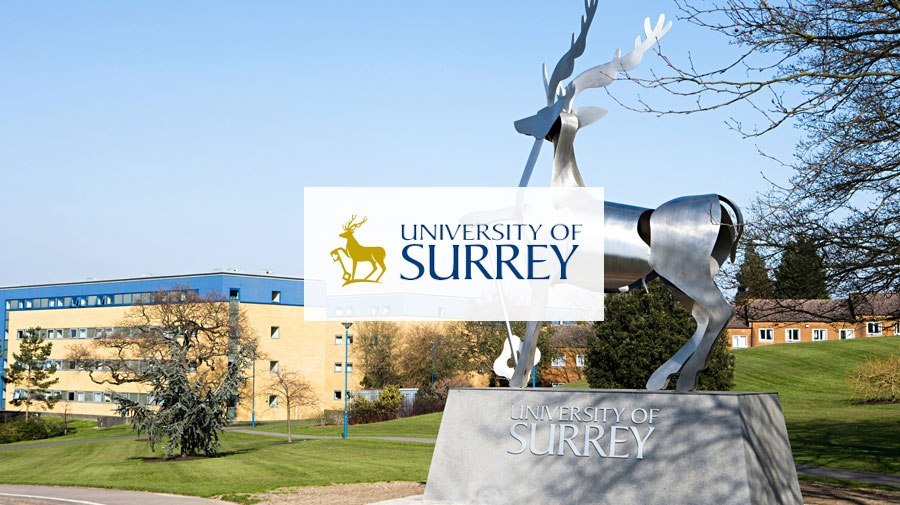Automotive Engineering PhD
Why choose this course
The University of Surrey’s Centre for Automotive Engineering (CAE) provides world-class technical research for vehicle analysis. This includes all electric and hybrid powertrains, autonomous vehicles, vehicle dynamics simulation, tyre dynamics simulation, design and simulation of vehicle subsystems (brakes, steering, suspension, chassis control systems design), design of experimental test benches, lightweight chassis design and vehicle aerodynamics.
A PhD course in automotive engineering will allow you to test the cutting-edge of science and make new discoveries. Our excellent laboratories and facilities are nationally and internationally recognised, and a stage for world-class research. We provide a multidisciplinary environment where doctoral students from different disciplines can meet and work together on applied engineering research topics with direct impacts on society.
Our researchers also regularly collaborate with industry, including work with Rolls-Royce, Dstl, and Jaguar Landrover. We are also host to the Rolls-Royce University Technology Centre in Thermo-Fluids Systems and the UK Engineering and Physical Sciences Research Council’s Centre for Doctoral Training (CDT) in Micro and Nanomaterials and Technologies. In the most recent Research Excellence Framework (REF) 2014, 80 per cent of our ‘general engineering’ research outputs were rated as ‘world-leading’ or ‘internationally excellent’.
What you will study
Our PhD in Automotive Engineering will give you the knowledge, skills and expertise needed for a career in engineering, research or academia. You’ll be intellectually challenged, develop research and management skills, and become an expert in your chosen field of study.
It normally takes around three years to complete a full-time PhD. You’ll be assigned a minimum of two supervisors, who will guide you through your PhD. You’ll learn how to conduct literature reviews, develop your ideas and verify them with experiments, and collaborate and perform interdisciplinary research. Over time, we’ll develop your skills into an independent researcher.
Research support
The professional development of postgraduate researchers is supported by the Doctoral College, which provides training in essential skills through its Researcher Development Programme of workshops, mentoring and coaching. A dedicated postgraduate Careers and Employability team will help you prepare for a successful career after the completion of your PhD.
Research themes
- Automotive engineering
- Computational fluid mechanics
- Design
- Hybrid vehicles
- Tyre dynamics
- Vehicle dynamics.
Intakes
- Oct
Application Processing Time in Days: 20
Minimum English Language Requirements
| English Level Description | IELTS (1.0 -9.0) | TOEFL IBT (0-120) | TOEFL CBT (0-300) | PTE (10-90) | |
|---|---|---|---|---|---|
| Expert | 9 | 120 | 297-300 | 86-90 | |
| Very Good | 8.5 | 115-119 | 280-293 | 83-86 | |
| Very Good | 8 | 110-114 | 270-280 | 79-83 | |
| Good | 7.5 | 102-109 | 253-267 | 73-79 | |
| Good | 7 | 94-101 | 240-253 | 65-73 | |
| Competent | 6.5 | 79-93 | 213-233 | 58-65 | |
| Competent | 6 | 60-78 | 170-210 | 50-58 | |
| Modest | 5.5 | 46-59 | 133-210 | 43-50 | |
| Modest | 5 | 35-45 | 107-133 | 36-43 | |
| Limited | 4 | 32-34 | 97-103 | 30-36 | |
| Extremely Limited | < 4 | < 31 | < 93 | < 30 |
Admission Requirement / Eligibility Criteria
Applicants are expected to hold a first or upper-second class degree in a relevant discipline (or equivalent overseas qualification), or a lower second plus a good Masters degree (distinction normally required).
- Course Type: Full Time
- Course Level: Doctoral Degree/PhD
- Duration: 04 Year
-
Total Tuition Fee:
88000 GBP
Annual Cost of Living: 9207 GBP
Application Fee: N/A
Similar Programs
- Micro- and NanoMaterials and Technologies EngD at University of Surrey
- Engineering Materials PhD at University of Surrey
- Engineering Materials PhD at University of Surrey
- Engineering Materials PhD at University of Surrey
- Engineering Materials PhD at University of Surrey
- Biomedical Engineering PhD at University of Surrey

